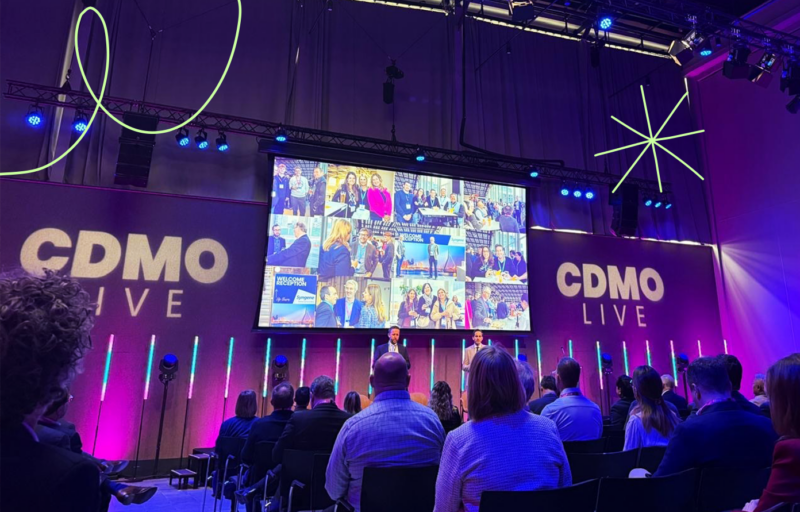blog:
The Alzheimer’s Puzzle: Pieces of Progress in Treatment

As a global population, we are living longer and healthier lives, but the knock-on effect of that is a greater burden of many chronic diseases. One such disease is Alzheimer’s, which is a degenerative brain disease and the most common form of dementia.
Strategic Brand Consultant, Laura Child, explores the disease’s history and developments in game-changing treatment.
According to Alzheimer’s Disease International, more than 55 million people worldwide were living with dementia in 2020, and 10 million new cases are diagnosed each year. It is expected that this figure will double every 20 years. Whilst I consider myself to be in the very fortunate position of having my grandparents live long enough to see my own children grow and thrive, it is hard to see them deteriorate because of dementia.
Despite its high prevalence, research has shown that most cases go undiagnosed, leading to a high treatment gap, particularly in low- and middle-income countries. Whilst a new case arises every 3 seconds globally, it is approximated that only 25% of those suffering from dementia have received a formal diagnosis.
There is no cure for Alzheimer’s Disease right now. Many patients who have access to treatment receive a combination of drug and non-drug treatments. Whilst existing drug-based treatments are unable to stop or alter the progression of dementia, there is significant research into developing more efficacious treatments, and hopefully a cure.
One exciting new development is the monoclonal antibody treatment ‘Lecanemab’, which has been developed by Eisai and marketed under the name of LEQEMBI. Strong phase 3 trial data showed that Lecanemab was able to remove amyloid and tau proteins from the brains of patients affected by early-onset Alzheimer’s, which was associated with moderately less decline in measures of cognition and function than placebo. Having gained FDA approval for use in the US in July 2023, the UK’s MHRA is currently reviewing the use of Lecanemab under the accelerated ‘Innovative Licensing and Access Pathway’ (ILAP). Lecanemab is not a cure, but it is the first approved treatment targeting the underlying biology of Alzheimer’s with an impact on the course of the disease in a meaningful way.
Eli Lilly has developed Donanemab, which is a liquid immunotherapy designed to clear amyloid plaques from the brain. It has shown some promising results in a large phase 3 trial. Eli Lilly also has another promising immunotherapy called Remternetug, also in trials for early-onset Alzheimer’s Disease.
Scientists continue to research the disease to better understand how to diagnose it more effectively, and how to slow its progression. In September 2023, an article in the prestigious Science by University College London journal and Belgium’s KU Leuven revealed a new connection between abnormal proteins and cell death. Accumulation of amyloid in the brain creates local inflammation and change in the chemistry of cells, which in turn causes brain cells to trigger their own death. The key finding is that this “necroptosis” was determined to be caused by a molecule called MEG3, and more importantly, the brain cells survived when the team was able to block MEG3.
This therapeutic potential led Prof Bart De Strooper to tell the BBC, “For the first time we get a clue to how and why neurons die in Alzheimer’s disease. There’s been a lot of speculation for 30-40 years, but nobody has been able to pinpoint the mechanisms.”
There are currently a whopping 700 clinical trials listed on clinicaltrials.gov either recruiting or preparing to recruit that are related to Alzheimer’s Disease and dementia, covering both drug and non-drug treatments. The momentum to tackle this disease is clearly growing, providing hope to those affected by the disease, and their loved ones. As inspirational companies are advancing incredible new therapies in the field of dementia – I feel privileged to support them on their mission to market.
I have seen firsthand with my grandparents that the pathway to diagnosis can be anything but clear, yet the ability to get a formal diagnosis can make all the difference in accessing the right information, support, treatment, and care, at the right time. This highlights the critical importance of awareness campaigns, which encourage people to seek diagnosis and gain treatment during the early stages of disease onset.
On this World Alzheimer’s Day, we show our heartfelt support to the millions of lives that are affected by all forms of dementia, both to the patients and the caregivers around them, and stand alongside those who dedicate their lives to better understanding dementia, and how we can treat it.
References:
https://www.alzint.org/
https://www.bbc.co.uk/news/health-66816268
Check out our other blogs from our resident sector experts
Disease X is coming, is pharma ready?
Customer insight: the key to a data-driven marketing strategy
Related news, insight and opinion





